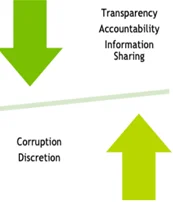Answer:
| Approach:
Introduction
- Write definition of corruption.
Body
- Mention the relevance of quotes in present day context.
- Add views of Kautilya on corruption.
- Add examples for substantiation.
Conclusion
- Conclude by relevant statements
|
Introduction:
“Just as it is impossible not to taste honey or poison that one may find at the tip of one’s tongue, so it is impossible for a government servant not to eat up, at least, a bit of the king’s revenue.”
This quote highlights Kautilya’s view that corruption is an inherent problem in public service, and that without proper checks and balances, officials will be tempted to misuse public resources for personal gain.


Body:
- The quote also emphasizes the importance of establishing strong institutions and ethical values to prevent corruption and promote good governance.
- One of Kautilya’s main concerns was the problem of corruption in government. He believed that corruption could cause significant harm to the state and society, and that it could lead to the misuse of government resources, administrative inefficiency, and obstruction in the path of national development.
- According to Kautilya, corruption can take many forms, including embezzlement of public funds, nepotism, bribery, and favoritism. He argued that such practices can lead to the depletion of the government treasury, as corrupt officials siphon off public funds for their own benefit. This can result in a shortage of resources for essential services and projects, hindering the overall development of the state.
- Moreover, Kautilya believed that corruption could also lead to administrative inefficiency, as officials prioritize personal interests over the public good. This can result in poor service delivery, slow decision-making, and ineffective implementation of policies and programs. The lack of accountability and transparency in such cases can also erode public trust in the government, leading to further disillusionment and disengagement from the political process.
Here are some examples to illustrate Kautilya’s views on corruption:
- Example 1: Misuse of government funds
- Corruption can lead to the misuse of government funds, as officials embezzle public resources for their own benefit. For example, in India, the 2G spectrum scam was a major corruption scandal that involved the misallocation of telecom licenses and spectrum by government officials. The scam caused significant losses to the government treasury and hindered the development of the telecom sector.
- Example 2: Administrative inefficiency
- Corruption can also lead to administrative inefficiency, as officials prioritize personal interests over the public good. For example, in Nigeria, corruption in the oil sector has led to poor service delivery, slow decision-making, and ineffective implementation of policies and programs. This has hindered the development of the country and eroded public trust in the government.
- Example 3: Obstruction in the path of national development
- Corruption can also obstruct national development by hindering the implementation of key projects and policies. For example, in Bangladesh, corruption in the construction sector has led to poor quality infrastructure, delays in project completion, and cost overruns. This has hindered the country’s economic development and contributed to public dissatisfaction with the government.
Conclusion:
To address these challenges, Kautilya’s views on the importance of promoting ethical conduct and good governance remain relevant today, and efforts to combat corruption continue to be a key priority for governments and international organizations around the world. Kautilya recommended a range of measures to promote transparency, accountability, and ethical conduct in public service. He emphasized the importance of strict laws and regulations, effective enforcement mechanisms, and the promotion of ethical values among public servants. He also proposed the use of surveillance and monitoring tools to detect and prevent corrupt practices, and the establishment of strong institutions to ensure good governance.

